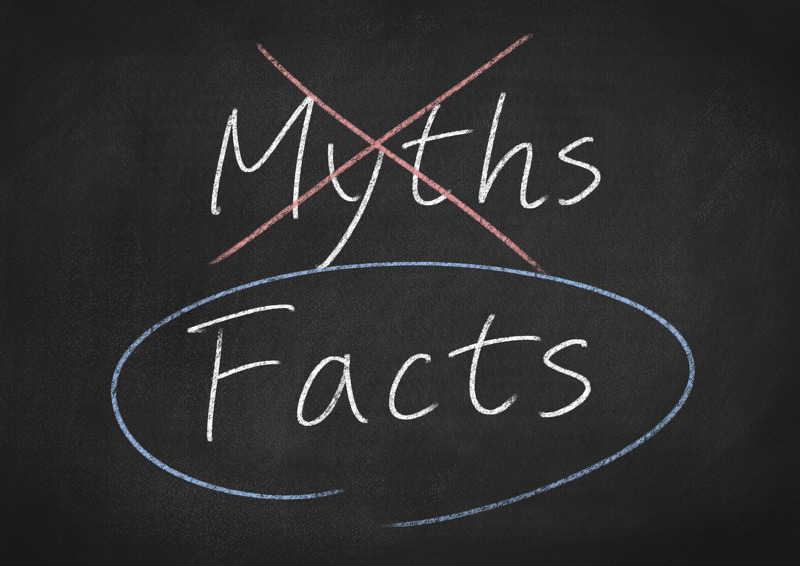Charge an iPod with an onion? Fake. A photograph shows Prince Harry and Meghan Markle in front of their new RV camper. False. Disney’s Goofy character is actually a cow. Not even close.
It is easy to believe that if something is on the internet or if everyone is saying it on the Internet, then that information is true. However, while it is easy enough to click over to Snopes to find out that Goofy is a dog, it is much harder to get the lowdown on shipping dangerous goods.
That’s why we turned to our partners at Labelmaster to shed light on some of the biggest shipping myths the Dangerous Goods Information System (DGIS) provider has been seeing and find out what the real deal is.
Pierbridge: One of the things we hear shippers say is that if a carton is United Nations (UN)-rated and/or marked, they can pack anything in it. Is that true?
Labelmaster: That’s one myth we need to shoot down. UN-certified packaging is highly specialized and designed specifically for lithium batteries, airbags, chemicals, and other materials. It does not give companies a generic pass to pack anything they want within a container.
Pierbridge: As retailers increasingly adopt an omnichannel shipping strategy, they wonder if they need training if they’re only shipping limited quantities of dangerous goods?
Labelmaster: This one proves that you can’t believe everything! Anyone, including those who might ship from a store, who handles hazmat — any kind of hazmat — is required to be trained and certified to ship hazardous material. Not staying up-to-date can lead to some pretty hefty fines. At Labelmaster, we offer training specifically for shipping “Limited and Excepted Quantities," to make it easy for shippers to stay up-to-date.
Pierbridge: Is it true that packages marked Other Regulated Materials for Domestic Transport Only (ORM-D) and Limited Quantity shipping via ground aren’t actually regulated?
Labelmaster: While it’s true that the ORM-D, Limited Quantity, and Excepted Quantity designations were put in place to be easier to comply with than Fully Regulated shipments, there are still plenty of regulations that do apply to such shipments to keep in compliance. And there will be more coming later in 2020.
Pierbridge: Some shippers think that regulatory agencies are working in conjunction with manufacturers to sell more labels and packaging. What are your thoughts on that?
Labelmaster: This is just one of the unfounded myths that surround hazardous shipping. While we’re not crazy about rules changes either, we understand that each change is put into effect after much consideration and reflection to keep supply chains safer for all involved.
Pierbridge: There is a general thought that if an item was shipped in a certain way, it must be compliant, and it can just be shipped again the same way. Is that the case?
Labelmaster: It is not the case and not the mindset one should have to safely ship Dangerous Goods (DG). Actually, 71 percent of hazmat pros surveyed in the most recent Global DG Confidence Outlook said that their supply chain partners are not as compliant as they are. In DG transport, it is safer to never assume anything. Always check the regulations for everything you ship to ensure you are not only in compliance, but are being as safe as possible for everyone involved— from the warehouse through the carrier to the end consumer.
Pierbridge: What about the talk among shippers that they can ship anything in 4GV packaging?
Labelmaster: Again, not a safe assumption. You can use 4G packaging for 99 percent of all shipments, including DG, and use more expensive 4GV packaging for the 1 percent of shipments that need to use them. Our system can help you determine which 1 percent you need to be concerned with.
Pierbridge: Are button cell lithium batteries actually regulated?
Labelmaster: This is probably where there is the most confusion among shippers. Button cells aren’t fully regulated, but there’s no such thing as “not really regulated.” You should be careful not to make this mistake. No lithium batteries of any kind can be shipped without regard to relevant lithium battery regulations.
Remember—just because “everyone knows” something doesn’t necessarily make it true. If you ever need to get clarification about dangerous goods shipments, it is worth contacting a DG expert at Labelmaster to separate fact from fiction.
